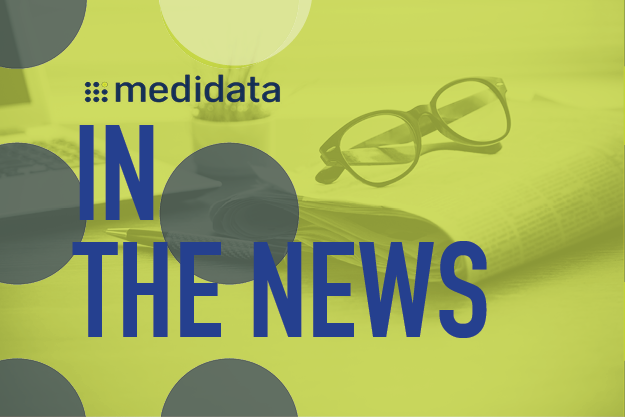AI is helping get medical research into the hands of doctors and patients

A patient-centric approach helps advance medical knowledge, which is desperately needed in the middle of a fast-moving pandemic.
"What we've been fighting is an inadequate infrastructure for pharmacies, biotechs, practitioners, and patients to interact," said Glen de Vries, president of Medidata.
SEE: Coronavirus: Critical IT policies and tools every business needs (TechRepublic Premium)
The idea behind Medidata's platform is to construct collaboration tools so that researchers, medical practitioners, biotech companies, and patients can interact with each other.
"With the COVID-19 pandemic that we're in today, what we've seen is an overall decline in clinical trials around the world," De Vries said. "For example, there's a 50% decline in the number of patients entering into oncology studies during the pandemic."
Patients are delaying visits out of fear that they will contract COVID-19 at a medical clinic or hospital.
"Patients staying at home make it more difficult for researchers to proceed with trials and research," De Vries said. "We need to do this work so we can understand the effect that SARS and COVID-19 have on the blood and the nervous system, and why children are developing a condition from COVID-19 similar to Kawasaki syndrome."
De Vries' company developed a patient-centric portal called My Medidata. It is Internet-enabled, and it focuses on each patient being the hub of their own research and ecosystem of care. The hope is that this will reignite patient engagement with medical researchers and practitioners during the pandemic.
SEE: 17,000 doctors and nurses training for COVID-19 pandemic using VR technology (TechRepublic)
"We track COVID-19 and also other medical conditions," De Vries said. "Many institutions, agencies and companies contribute data to us. This allows us to provide analytics gleaned from a worldwide repository of anonymized data that aids researchers and clinicians because they now have access to a much broader patient population than they would if they just individually collected data from their own research and trials. The analytics help them develop precision medicine treatments for individual patients."
A broader field of data is also enabling researchers, pharmaceutical companies, medical practitioners and patients to develop a greater understanding of the underlying factors and conditions that affect medical treatments.
"What we've found with COVID-19 is that we have been talking about age and compromised immune systems as rendering people more susceptible to the virus," De Vries said. "But what we're really finding is significantly more complicated than that. Patients respond to medicines and treatments differently, so we look at genes, phenotypes, pre-existing conditions, and other elements. We're seeing that age in itself might not be the final criterion for determining who is more susceptible to COVID-19. We're also learning more about different types of patients. This enables us to consider precision medicine that better pinpoints the treatments and medicines that will be most effective."
SEE: How industry cloud technology is changing healthcare (ZDNet)
The goal is to treat the right patient with the right treatment at the right time.
On the analytics side, artificial intelligence (AI) using algorithms and queries is augmented by machine learning that can detect data patterns and deduce insights from them. Stacks of data from various sources are then consolidated into a single large dataset for the analysis.
"We call this 'synthetic control,'" De Vries said, "because what we're doing is synthesizing a great deal of data from myriad sources into a final denominator. This final denominator doesn't occur in the real medical world, where clinics and researchers operate on their own independent data. Instead, the data we provide is a consolidation of many different patient profiles and findings from around the world. The data furnishes users with a large amount of data that can be used for study and comparison."
An example in the case of COVID-19 would be a vaccine under development where the formula hasn't had a chance to be tested for safety. Using a worldwide data repository with anonymized patient information, a vaccine developer could perform comparative studies to determine which patient profiles would likely be most compatible with the vaccine.
"This is a tool that gives many more hypotheticals to test research against than we've had before," said De Vries. "As a tool, it has the potential to bring us to solutions faster."